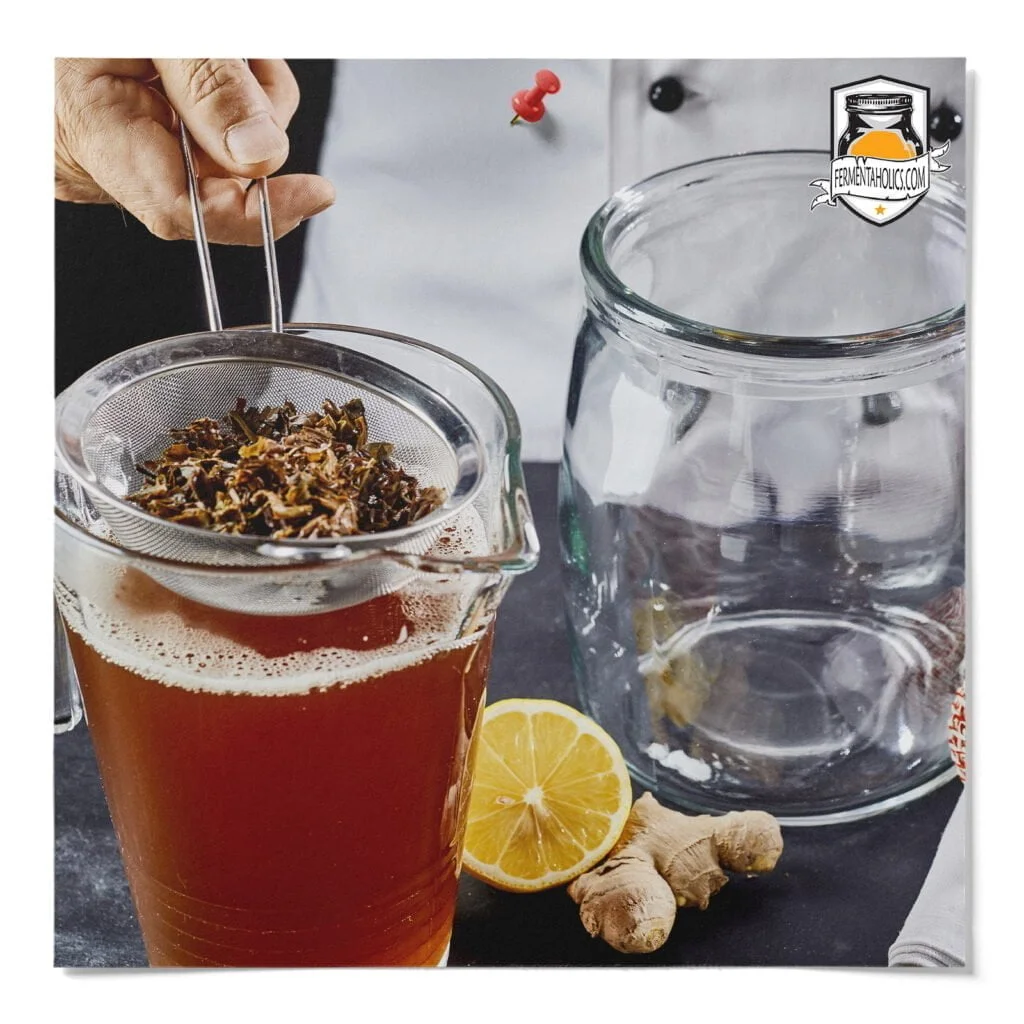
A lot of content out there that will tell you DON’T USE METAL while brewing kombucha, you’ll kill your SCOBY! But is it true though? Not really. That’s only a broad assumption that all metals are the same and that all metals will instantly leach chemicals into your brew. The reality of using metal in your kombucha brew isn’t so black and white, so let’s discuss.

This is the most common way that metal comes in contact with kombucha and is often recommended to avoid altogether. However, using a metal spoon to stir in your brew or pull out your SCOBY is 100% okay, your kombucha culture will be just fine..
Many homebrewers like using brewing vessels equipped with a spigot. These shut off valves on the bottom make it easier to harvest kombucha. If you’re looking to buy one like this, pay attention to the valve because they are often come with cheap plastic spigots.
To cut up a SCOBY, feel free to use regular ol’ scissors or a knife. Neither will cause any long term harm.
This is less common for home brewing because glass makes a great option when you’re brewing a gallon or two. However, glass becomes more challenging to work with when you start brewing larger quantities. Not only are larger glass brewing jars fragile, but they also tend to be very heavy. You can use an acid-resistant plastic, like those for brewing beer or wine, or stainless steel fermenters.
The reason for the formation of a new SCOBY in the bottle is often due to the extra head space. For example, if you were to fill your swing top bottles halfway with kombucha, your bottle would now be half liquid and half air. The extra air in the bottle is now available as a resource for the culture to draw from, which will help to promote the formation of a SCOBY.
Now, similar to your primary fermentation, the bottles now have an extra but limited supply of air to work with inside the bottle. With additional air space, the likelihood of SCOBY forming inside the bottle increases.
Let’s talk a little about aluminum. Aluminum is a very popular choice for kitchen products today, including pots, pans, and spoons. Aluminum is not super acid resistant, so it should be avoided when making something like cheese. With kombucha, though, you are just using your aluminum pot to brew the tea, which is pretty neutral as far as acidity goes. You can even pick up the SCOBY pellicle with your aluminum spoon. You just want to avoid prolonged exposure. As soon as you add the SCOBY and the starter tea into the equation, the acidity gets lowered, and then you want to be a little more careful with your utensils. Over time, the aluminum will start to break down due to the acidity, so you don’t want to forget your spoon in your brew jar or use your aluminum pot as your brewing vessel.
Food grade stainless steel – if you’re using stainless steel anywhere in the kitchen, it’s good to make sure it is grade 304 or higher. This stuff is non-reactive, won’t rust and is lightweight. I would highly recommend it for material for your spigot or fermenter if you plan to purchase one.
You definitely can avoid using metal if you please, although my point in writing this post is to remove a bit of stress associated with the idea of metal. As long as whatever you’re using isn’t soaking in the kombucha, as a spigot would, you don’t have to be too crazy about avoiding it. Many people suggest using wooden spoons only, and that, of course, is okay provided it hasn’t been oiled up and isn’t moldy. As far as spigots go, stainless steel is the best. The only other valve I would recommend is a wooden spigot. Always avoid plastic or cheap metal spigots. For most home brewing, one or two-gallon glass jars are a great vessel. If you decide you want to make a five-gallon batch – you can opt for the plastic brewing buckets that are available at your local homebrew supply shop.
Have you wondered about metal and kombucha? Hopefully, this helped ease a little tension around the idea and will allow you to focus on other things like what flavor you’re going to choose next!
